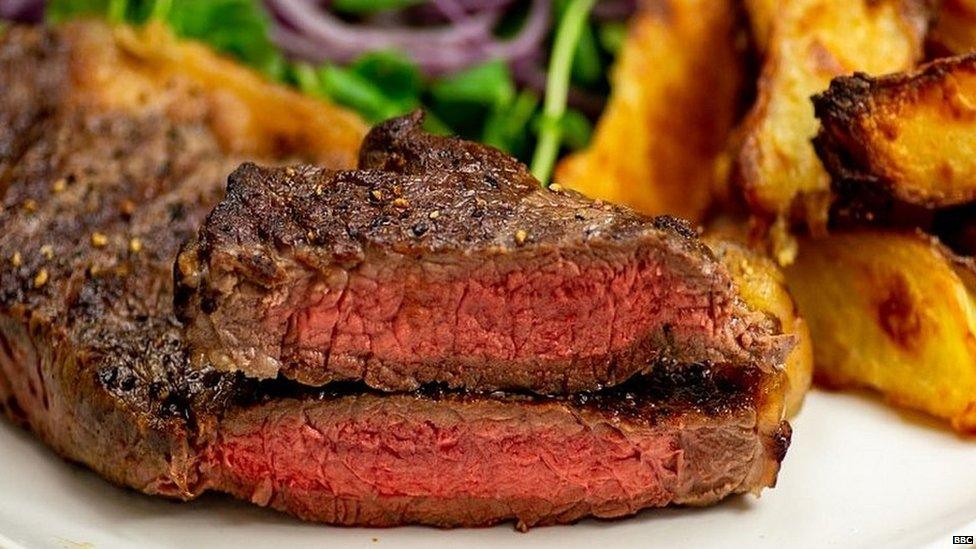Agriculture bill: Bid to protect post-Brexit food standards rejected
- Published
- comments

MPs have rejected the latest attempt to require imported food to meet domestic legal standards from 1 January.
They struck down a Lords amendment to the Agriculture Bill to force trade deals to meet UK animal welfare and food safety rules.
Campaigners have warned the UK could be forced to accept lower standards to secure a future US trade deal.
But Farming minister Victoria Prentis said the government was "absolutely committed to high standards".
Existing laws would safeguard them, she told the House of Commons, adding that these were "of more use than warm words" in maintaining animal welfare, food standards and environmental protections.
The bill - designed to prepare the farming industry for when the UK no longer has to follow EU laws and rules next year - returned to the Commons on Monday following amendments by the House of Lords.
The government says EU rules banning imports of chlorine-washed chicken and other products will be automatically written into UK law once the post-Brexit transition period ends on 31 December.
But peers made a number of changes, including one which would give MPs a veto over sections in trade deals relating to food imports, which would be required to comply with "relevant domestic standards".
They argued these changes were necessary to make it impossible for the US or other countries to export so-called chlorinated chicken or beef fattened with hormones.
However, MPs voted by 332 votes to 279 - a majority 53 - to back government plans to reject the amendment.
Jamie Oliver accuses the government of using "back door" secondary legislation to avoid scrutiny of post-Brexit food standards
However, Conservative MPs Sir Roger Gale and George Freeman said they would vote for the amendment to remain in the bill, saying it was in line with their party's 2019 manifesto pledge to maintain welfare standards.
Neil Parish, the Conservative chairman of the Commons Environment, Food and Rural Affairs Select Committee, told the Commons that Brexit meant UK agriculture could move in a "much more environmental direction", including planting more trees and cutting the use of nitrates.
The country should be a "beacon" of high animal welfare and countryside-protection standards, he added.
But Conservative MP John Lamont supported the government, saying the amendments were "not in the interests" of food producers or standards and would be "bad for trade".
Party colleague Anthony Mangnall said there had been a "huge amount of fear-mongering" over the importation of chlorinated chicken and hormone-injected beef, and that "has to stop".
'Back British farmers'
In the Commons, Liberal Democrat environment spokesman Tim Farron said the controversy over chlorinated chicken was not "about the quality of food" but the "integrity of our farming industry".
For Labour, shadow environment secretary Luke Pollard said this was a "crucial moment for British agriculture", adding that high standards could all be "thrown away".
He urged the government to "show some leadership" and "back British farmers".
The bill must include guarantees that UK farmers would not be "undercut" in post-Brexit trade deals, Mr Pollard said.
However another potential rebellion by backbench Tory MPs was avoided by the government when the deputy speaker ruled out an amendment to strengthen the new Trade and Agriculture Commission.